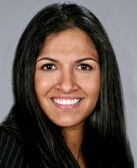Outgoing Bernstein Shur CEO reflects on boosting diversity, ending billable hours
 Photo / Renee Cordes
Pat Scully, the outgoing CEO of Portland law firm Bernstein Shur, sat down with Mainebiz to talk about the firm he's led since Jan. 1, 2014, and spent his whole career at, and his post-retirement plans.
Photo / Renee Cordes
Pat Scully, the outgoing CEO of Portland law firm Bernstein Shur, sat down with Mainebiz to talk about the firm he's led since Jan. 1, 2014, and spent his whole career at, and his post-retirement plans.
On Dec. 31, Pat Scully will mark his last day as CEO of Portland-based law firm Bernstein Shur before handing the reins to Joan Fortin. In an interview at Bernstein Shur’s Middle Street headquarters, he reflected on changes in his practice and the firm he’s spent his entire career at and led for the past five years, along with his post-retirement plans.
MB: What are your plans for your next life chapter?
Pat Scully: I want to take whatever skills and experiences I have and do something in the public sector, where I can do something positive that feels important. Most of what I”m focusing in on are things that involve young people — I’m hoping to find something in education.
MB: Would you consider teaching?
PS: I would love to be a teacher, it's one of the things I'm looking at as a possibility. If I could include either teaching a course at the law school [University of Maine School of Law] or teaching something at [University of Southern Maine] as a component of what I do, it would be a lot of fun.
MB: Going back to your first day at Bernstein Shur, what was your first impression?
PS: My biggest impression was not as much the first day as it was the interview process. For my summer clerkship I interviewed with probably a dozen firms around Portland. At Bernstein Shur, I interviewed with Barney Shur, a warm human being who represented the culture of this place and was very invested in his community. I just knew this was the place I wanted to be.
MB: When did you decide to specialize in energy law?
PS: I started as a trial lawyer and then shifted more toward administrative law, and municipal law. At the time in our municipal group, which I chaired for 10 years, we had one lawyer, Gordon Grimes, who did energy work, and started to pull me into energy cases. That over time consumed my whole practice. I became very involved with the Public Utilities Commission, mostly representing the companies in the renewable energy sector. It was a fabulous area to be in, a growing area, and I loved it.
MB: Did that area change a lot?
PS: Solar has become super-competitive price-wise — you can produce solar cheaper than just about any other kind of power now.
MB: Do you see opportunities for other renewable energies?
PS: There’s only going to be more need to replace fossil fuels, given climate concerns, with renewable power. As we get more experience with new technology and start to produce more, it brings the cost down, and that’s what happened with solar.
MB: You’re leaving Bernstein Shur just as you’re launching a diversity initiative with Pierce Atwood and Verrill. Are you sorry you won’t be here to see that through?
PS: I’m not disappointed to not be here for the summer to see the program, I’m just excited about where I think it can go.
MB: How long before the effort will yield results?
PS: It’s going to take time, but we’re starting small — with six students across three firms. If we can get more firms on board, that number can go up every year. Not all of them will stay and practice in Portland, but some of them will, and we can start building a community of diverse lawyers here that will attract more diverse lawyers here. I think it’s going to have a snowball effect, and I’m really hoping that proves to be true.
MB: Any advice to your successor as Bernstein Shur CEO, Joan Fortin?
PS: We’ve been colleagues for a very long time, and she’s been involved in firm leadership in different capacities, so she is more than ready to take this on. I think she’s going to do a great job and be a terrific representative of the firm, and I’m really excited. She’s qualified on her own merits, but the fact that she’s a woman is just icing on the cake. Half our of board directors are women, and we’ve got three women practice group leaders here, so we’re making every effort to advance and create opportunities for our women lawyers.
MB: Is the firm's 16-week paid parental leave policy part of that?
PS: The parental leave policy had its roots in "What can we do to make it easier for our young parents to get through that part of their lives?" We know that this challenge of parental leave impacts women more than it impacts men, so we wanted the policy to be balanced and equal, but it is certainly a part of our effort to try and retain our best women lawyers and staff members.
MB: Any other achievements you would highlight during your time at the firm?
PS: When I first started in my practice, lawyers were trying to be a little bit of everything. We held ourselves out as being a general practice firm, and we would do almost anything for our clients. What’s different now is, as the firm with the most lawyers in Maine, we’ve tried to become deeper in few things. We’ve really become expert in emerging issues and industries. In areas like data privacy and security, we’ve hired several people, we’ve got great bench strength, and I’m proud of our depth as a firm.
MB: What about more recent changes?
PS: We're slowly moving away from the billable hour towards a system where we charge our clients based on what we think the value is that we’re delivering to them.
MB: Is that where the industry is going?
PS: I think it's the way the industry is going. In places like Portland, Maine, it's not gotten very far yet, but we're actively trying to move in that direction. We think it better aligns our interests with our clients' interests.














0 Comments